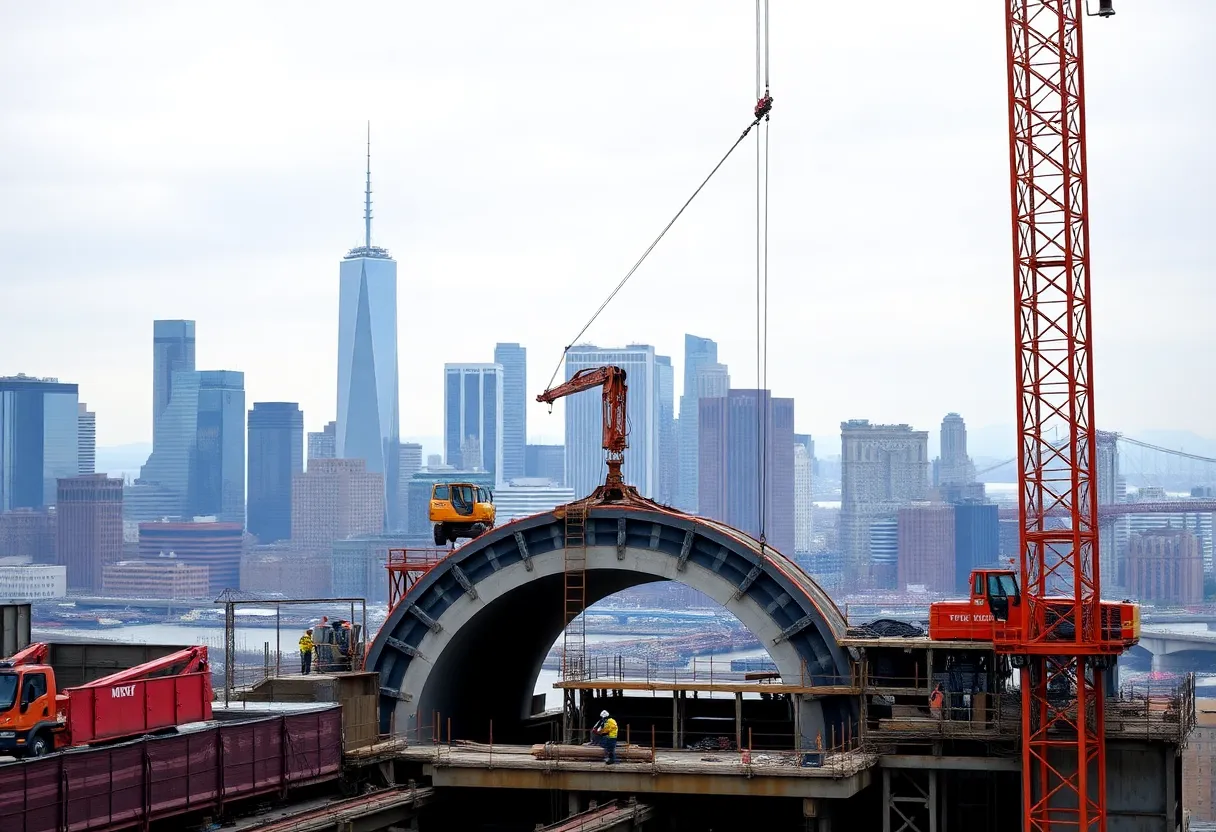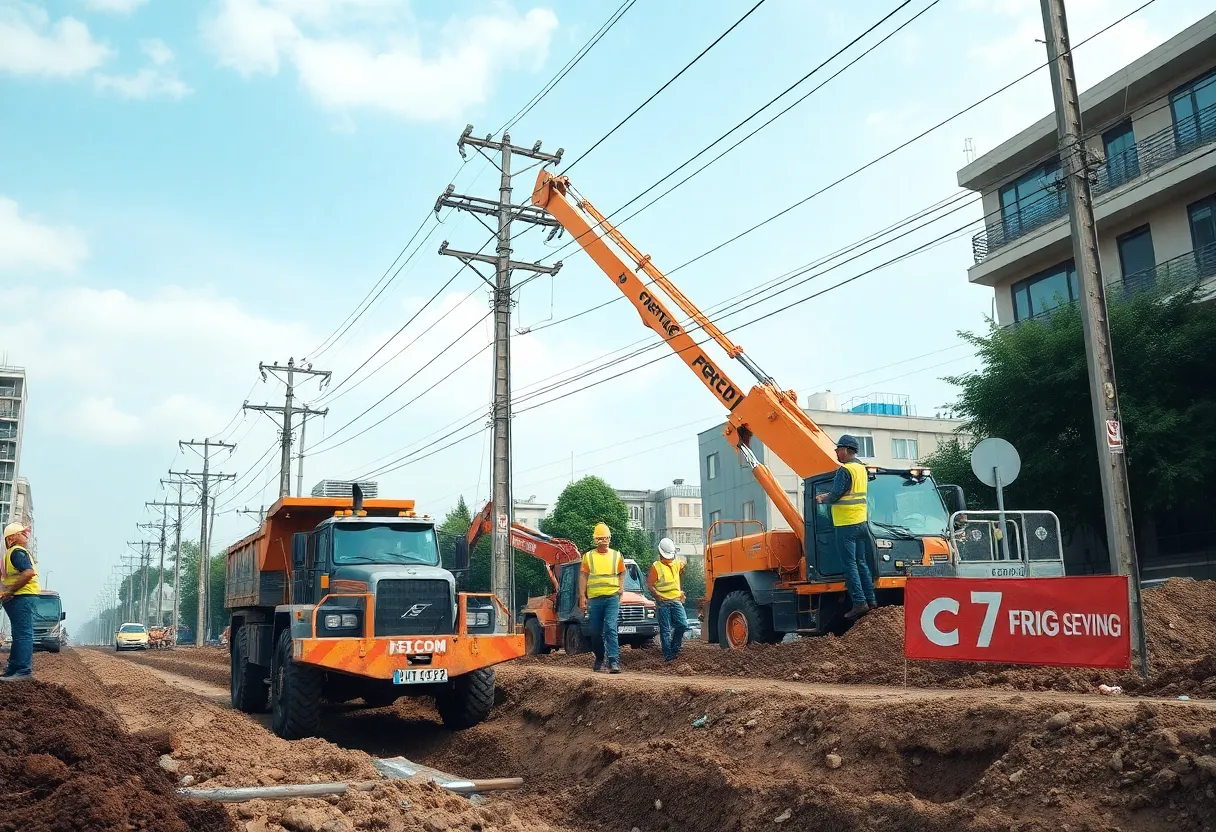News Summary
Recent advancements in artificial intelligence are revolutionizing the U.S. construction industry. By addressing long-standing inefficiencies and enhancing project delivery, these AI-driven systems promote real-time monitoring, data management, and substantial cost and time savings. As construction adapts to digital transformation, the integration of AI technologies facilitates smarter decision-making and stronger collaboration between various sectors. This shift signifies a cultural evolution in the industry, enhancing operational effectiveness and resilience in infrastructure delivery.
Mariah Naomi Carlos Umoru Leads AI-Powered Transformation in U.S. Construction
The U.S. construction industry is experiencing a significant transformation driven by innovative technologies, particularly through the pioneering work of Mariah Naomi Carlos Umoru. By introducing artificial intelligence (AI) and intelligent project delivery systems, Umoru is effectively addressing long-standing issues such as budgeting inefficiencies, scheduling conflicts, and resource allocation challenges. This revolutionary approach marks a pivotal shift towards improved construction practices.
Advanced Platforms for Enhanced Outcomes
Umoru’s developments include the creation of scalable and interoperable platforms that facilitate smarter and faster construction outcomes. These platforms are designed to integrate architectural design logic with AI-enhanced delivery frameworks, ensuring that construction processes are not only more efficient but also more effective.
The systems enable real-time data monitoring across various critical areas of project management, including project schedules, budgets, and on-site performance. This robust monitoring capability allows project managers to utilize predictive analytics that can detect early signs of disruption and implement corrective actions proactively.
Cost Savings and Accelerated Milestones
Umoru’s intelligent systems are proving to deliver remarkable results on major infrastructure projects, where they have successfully reduced cost overruns by more than 30%. Additionally, these systems have also accelerated the delivery of project milestones by 25%, demonstrating their effectiveness in streamlining operations.
The innovative tools cover a wide spectrum of functionalities, encompassing everything from software design and systems architecture to modeling dynamic workflows. As a result, construction managers and executives are provided with live dashboards that facilitate data-driven decisions, substantially enhancing their ability to lead projects effectively.
Seamless Integration with Existing Technologies
Moreover, Umoru’s platforms are developed to integrate seamlessly with technologies that are already widely in use within the industry, including Building Information Modeling (BIM), Internet of Things (IoT) sensors, and Enterprise Resource Planning (ERP) environments. This level of integration supports the transformation of digital systems that underpin construction lifecycle management, promoting enhanced management from the initial planning stages through to field execution.
Moving Towards Real-Time, Intelligent Control
One of the most significant advantages of these innovations is the shift they cause in the way projects are managed. The industry is moving away from reactive project management practices towards a more real-time, intelligent control approach. This transition signals a more modernized and resilient infrastructure delivery model as the construction sector continues to digitize.
Umoru’s contributions are not only limited to public sector initiatives but also extend to private sector projects. By emphasizing the importance of intelligent project delivery systems, the advancements are redefining existing norms and setting new standards for the entire industry.
A Future of Resilient Infrastructure Delivery
As Umoru’s scalable and actionable frameworks gain traction, they offer a promising future for the construction industry, characterized by more resilient infrastructure delivery. As the sector modernizes through these digital innovations, it stands to benefit from increased efficiency, reduced costs, and the overall better management of construction projects.
In conclusion, Mariah Naomi Carlos Umoru’s groundbreaking work is leading a revolution in the U.S. construction industry. By leveraging AI and intelligent project delivery systems, a new era of construction management is emerging, bringing with it the promise of improved efficiency and effectiveness across the board.
Deeper Dive: News & Info About This Topic
Additional Resources
- Construction Tech Review
- Wikipedia: Artificial Intelligence
- For Construction Pros
- Google Search: smart construction technologies
- BIM Community
- Encyclopedia Britannica: Building Information Modeling
- New Civil Engineer
- Google News: construction industry news
- Construction Dive
- Google Scholar: AI in construction
Author: Construction NY News
The NEW YORK STAFF WRITER represents the experienced team at constructionnynews.com, your go-to source for actionable local news and information in New York and beyond. Specializing in "news you can use," we cover essential topics like product reviews for personal and business needs, local business directories, politics, real estate trends, neighborhood insights, and state news affecting the area—with deep expertise drawn from years of dedicated reporting and strong community input, including local press releases and business updates. We deliver top reporting on high-value events such as the New York Build Expo, infrastructure breakthroughs, and cutting-edge construction technology showcases. Our coverage extends to key organizations like the Associated General Contractors of New York State and the Building Trades Employers' Association, plus leading businesses in construction and real estate that power the local economy such as Turner Construction Company and CMiC Global. As part of the broader network, including constructioncanews.com, constructiontxnews.com, and constructionflnews.com, we provide comprehensive, credible insights into the dynamic construction landscape across multiple states.





